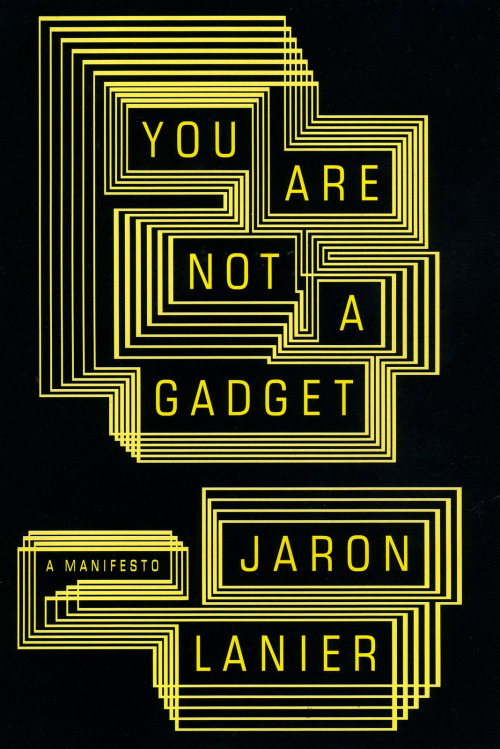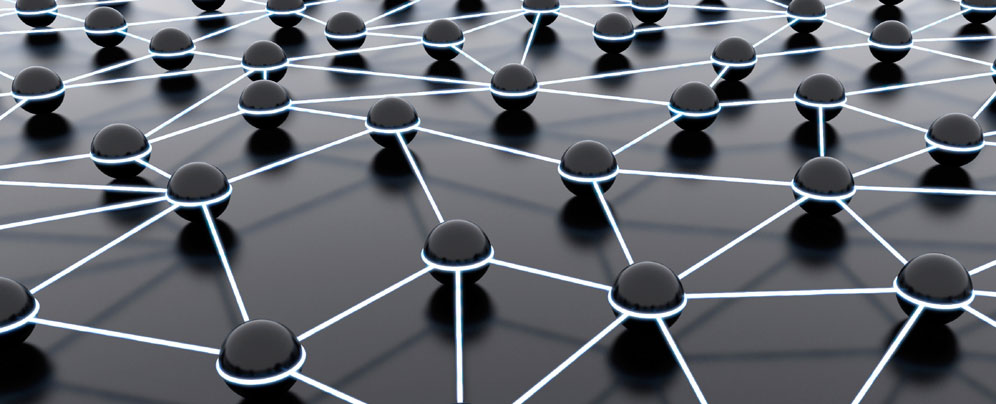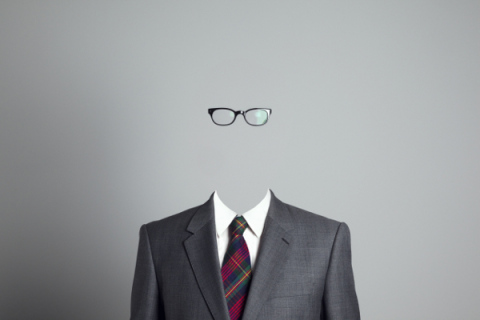I’ve been reading a book that was recommended to me by a professor of mine. It’s “You Are Not A Gadget” by Jaron Lanier, and it’s an incredibly interesting read. It’s a studied look at the effects of the Internet on our daily lives, and talks about his take on both how structures influence meaning and culture and, ultimately, how those shape the kinds of things we take for granted.
Lanier has something of a background in the Internet– I’m understating things here; he’s credited with popularizing the term “virtual reality” and has been working in computers and technology for longer than I’ve been alive. It’s fascinating, then, to read his generally skeptical, sometimes negative view on the Internet. He adopts a severely critical view on the culture of the Internet and where it’s gone, and does so from a position of knowledge and understanding, which I find incredibly rare.
The overall tone of the book (as far as I’ve read; about halfway thus far) is that of disappointment; that the Internet could have been much more and instead what we’ve done with it is create a massive shopping network and commodify ourselves, making ourselves and our lives the products for large-scale corporations. He’s not wrong; facebook, twitter, many blogs, lots of games, all of these are making money not from the people who use them, but from third-parties who buy and sell information about people. Indeed, he has a fairly severe anti-social-media bent, though it’s rooted in a deep knowledge of the systems at work.
He takes the concept a step further, and suggests that our easy adoption of these structures has redefined what we consider possible, and that it’s constraining our creativity. He goes beyond that and suggests that we are reducing ourselves through our expression, and that we’re redefining what it means to be a person into something that fits neatly into our current internet-social constructs. He says this is limiting, and that we run the risk of dehumanizing ourselves in our mad rush to be ever more connected and ever more in tune with internet culture, the “culture of the future”.
I’m torn on my reaction to this. Were it said by someone without his credentials, I’d quickly dismiss it as the rocking-chair ranting of someone who the future left behind, who doesn’t understand what the future has brought and is afraid of it. The thing is, he demonstrably DOES understand it, or at least its structure, and as a result I’m inclined to give him a bit more than short shrift. When he talks about how the idea of a “file”, something so deeply embedded in our cultural consciousness as an immutable concept, that’s simply one of many possible means of storing data, it resonates. He comments that the “file” is one of a number of possible structures that were being developed simultaneously, and simply caught on.
He goes on to state that, unlike a lot of other human endeavors, computer science and software engineering don’t necessarily generate the best solutions. A massive, unfathomably complex system needs a particular fix, and needs it RIGHT NOW, and the first, quickest fix isn’t necessarily the best one, yet it endures because tearing down the edifice to “do it right” is unthinkable. He uses MIDI as an example– developed originally as a way of digitizing a single, specific musical instrument (the keyboard), it has expanded to imitate a vast number of musical concept, some better than others, and has instilled itself as a type of sound we expect. It’s worked its way backwards from an imitation of “real” music into “real” music itself, and entire genres and subgenres of music are borne of it.
It’s about here where he and I disagree. He’s horrified by this, saying that the extremely limited MIDI form constrains our understanding of the whole of music as we come to expect its sounds over other musical sounds. I find it clever and fascinating that we have the ingenuity to turn anything, even the most simplistic pale imitation of music, into a musical art form unto itself. He thinks it speaks to a reduction in our worldview, I see it as a triumph of the human urge to express itself. Digital music allows people who could previously never have made music to express themselves musically, and yet it’s still a functional and practical enough medium to be recognizably used for specific technological purposes (like cell phone tones and PC error messages).
I also see his scathing critiques of social media and the harms that some of it have allowed, and I’m unable to completely disagree. He talks about the parasitic nature of social media, and how it pulls us apart while purporting to bring us together. I’m hard-pressed to disagree, especially as I see friends of mine get burned out of things like Facebook and Twitter and take a break, attempting to rid themselves of the mental toll it takes. He mentions the original source of anonymity on the Internet, and laments that this stopgap solution put in place decades ago has become a tool for harassment, trolling, and other vulgarity.
I can’t disagree with what he sees, but I also don’t think it’s the entire picture. Were I to abandon social media, I would lose contact with a great many close friends, solely because of the inconvenience of distance and different time zones. The great sign of friendship that we often rave about is the ability to see a person after months or years and pick up where we left off as if only hours had passed. Prior to the internet, that was rare, a special kind of friendship that few of us attained, if we attained it at all. Now, for me, it’s true of many of my friends, far more than I’d otherwise be able to keep up with in person. I see the harms of anonymity, people being harmful or dangerous and using anonymity as a shield to protect them from retribution. I also see the people whose voices were never previously heard, able to speak for the first time (sometimes in human history) because that same anonymity shield protects them from reprisal.
It’s a privilege, I think, to be able to look only at the bad that the Internet has wrought, and knowing that one could do without it, decry the endeavor as a disappointment. I think it speaks to how we can be highly knowledgeable in our field and still not see the bigger picture; we can be blind to the implications of our own work despite our expertise. It mirrors my own concern with my creative work– do I include viewpoints that I don’t share or don’t fully understand and cause them to be represented even if my representation is inaccurate or unintentionally offensive, or do I leave them out and perpetuate the cycle of under-representation?
It creates a catch-22, I think. I can’t write about perspectives I know without risking misrepresentation, but I can’t avoid writing about them if I’m concerned about perpetuating the status quo. We can’t purge the anonymous internet trolls without catching the previously-voiceless in the crossfire.
I used to think, like Lanier appears to, that we could build things “properly”, such that we got all of the good parts and none of the bad. I’m no longer think that’s possible. There’s no getting the good without the bad, and what’s left is deciding how much of each is worth it.





Based solely on your characterization of the tone that Lanier takes (second hand of a second hand, I suppose), it sounds like he’s complaining about the barn door being open after the horses have escaped, and then only BECAUSE the horses escaped.
The Internet originally had lofty goals (I mean, after the post-apocalyptic communications purpose) as a way to allow academics to communicate. I first encountered the Internet in this setting; in fact, I remember standing in my dorm room, reading an article with Tim Berniers-Lee about “web pages” and “hyperlinks”, and — as s biology student — instantly understanding the ramifications for scientific journals, for research materials, and for the sharing of ideas.
But Capitalism abhors a vacuum, and those with less lofty goals (i.e. money) filled the space quicker than education and intellectuals could. As soon as everyone saw how easy it was to make a quick buck on the Internet, no one was above giving it a shot…even the formerly high-minded intellectuals whose own costs were rising.
Seeing the potential of a tool like the Internet wasted on porn and scams and as a square hole that occupies the time of so many trying to fit the round peg of profit would (and does) depress me as well, but limiting a point of view to just what could have been is always going to be a losing proposition.